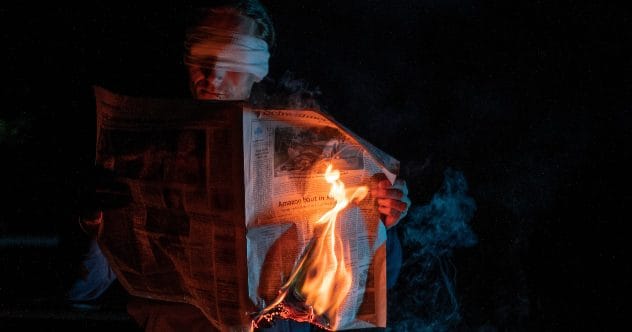History isn’t just a collection of dates and events; it’s the story we tell ourselves about where we’ve come from. But what happens when that story gets twisted? Sometimes, powerful individuals or groups try to reshape the past to fit their own agendas. This isn’t about correcting minor errors; it’s about deliberate attempts to change our understanding of major events, often to make themselves or their C.A. look better, or to downplay uncomfortable truths. Let’s explore ten significant instances where people tried to rewrite history, often with motives far from noble.
10 Battle of Agincourt (Henry V)
The Hundred Years’ War, a lengthy conflict between England and France, features many famous battles. Among these, the Battle of Agincourt in 1415 often stands out. Popular accounts, fueled by King Henry V’s narrative and later immortalized by Shakespeare, paint it as a miraculous English victory against overwhelming French forces – sometimes claimed to be five times larger.
However, modern historians suggest this narrative might be an exaggeration. While the English were likely outnumbered, the disparity probably wasn’t as dramatic as claimed. Some scholars even argue the numbers were closer to even, or perhaps the French had only twice as many soldiers. King Henry V greatly benefited from the tale of an incredible underdog victory. This carefully crafted story significantly boosted his reputation and legacy. It makes one wonder if Henry V would be as renowned today without this strategic reshaping of historical numbers.
9 Lost Cause of the Confederacy (Confederate American Historians)
Even today, debates surrounding the U.S. Civil War continue, partly due to a persistent attempt to rewrite its causes. This effort, known as the “Lost Cause of the Confederacy,” was spearheaded by Southern historians and sympathizers after the war. They sought to portray the Confederate cause in a more heroic and less controversial light.
Proponents of the Lost Cause argue that the war was primarily about states’ rights, resisting Northern aggression, and preserving a noble Southern way of life. They often downplay or ignore the central role of slavery, sometimes even suggesting that enslaved people were treated well. While economic factors and states’ rights were part of the complex political landscape, most contemporary historians agree that the desire to maintain and expand slavery was the fundamental reason for the Confederate states’ secession. The enduring nature of the Lost Cause myth shows how effectively misinformation can shape public understanding, even generations later.
8 The Pink Swastika (Scott Lively and Kevin Abrams)
Nazi Germany systematically persecuted various groups, including Jewish people, Romani people, Black people, and homosexuals. To identify these groups, symbols were enforced – Jewish people wore a yellow Star of David, and homosexual men were forced to wear pink triangles. This established history was challenged by Scott Lively and Kevin Abrams in their book The Pink Swastika.
Lively and Abrams controversially claimed that the Nazi party wasn’t anti-homosexual but rather opposed effeminate men. They went further, suggesting that the Nazi party had roots in gay bars and that many prominent Nazis were gay. Their agenda appeared to be an attempt to shift blame, portraying gay people not as victims of the Holocaust but as somehow complicit or even responsible. Fortunately, their work was widely rejected by academics and historians as a baseless and harmful distortion of historical facts.
7 January 6th, 2021 (Some Republican Politicians)
Sometimes, attempts to rewrite history happen almost immediately after an event. On January 6, 2021, supporters of then-President Trump stormed the U.S. Capitol building. This occurred during the certification of Joe Biden’s victory in the 2020 presidential election. Millions watched the events unfold live on television, witnessing the breach of the Capitol, which resulted in injuries and deaths.
Despite the widespread coverage and documentation, some Republican politicians began to offer alternative narratives shortly afterward. Claims emerged that the insurrectionists were “crisis actors” or that the protests were entirely non-violent. For instance, Representative Andrew Clyde compared the events to a “normal tourist visit,” while Representative Marjorie Taylor Greene referred to the rioters as “political prisoners.” These attempts to downplay or reframe a recent, traumatic event represent a concerning trend in historical revisionism, though most people who witnessed the events have not accepted these altered accounts.
6 Tiananmen Square Massacre (Chinese Government)
The Tiananmen Square protests of 1989 are a significant event in modern Chinese history. For weeks, students and workers gathered in Beijing and other cities, calling for political and economic reforms. In Tiananmen Square, the number of protesters reached around 100,000.
The Chinese government’s response was a military crackdown. Soldiers, tanks, and live ammunition were used to clear the square. Accounts describe a brutal suppression, with estimates of the death toll ranging from several hundred (the official government figure) to as high as 8,000 to 10,000 according to some external sources. The government regained control, and many surviving protesters faced arrest or exile. The Chinese government has since largely suppressed discussion of the massacre within China, heavily censoring information and promoting a heavily sanitized version of events. This represents a powerful state-led effort to control and rewrite a painful chapter of its history.
5 Japanese War Crimes in World War II (Attempts at Downplaying by Some in Japan)
While Nazi Germany’s atrocities during World War II are widely known, Imperial Japan also committed numerous war crimes. These devastating actions caused immense suffering across Asia and among Allied prisoners of war. Some of the documented crimes include:
- Attacks on neutral countries and downed airmen
- Brutal human experimentation (e.g., Unit 731)
- Use of biological and chemical warfare
- Widespread torture and execution of prisoners of war
- Forced labor under horrific conditions
- Instances of cannibalism
- Mass rape, notably the “comfort women” system
- Attacks on hospital ships
Despite substantial historical evidence, some figures in Japan, including Yuji Iwanami (granddaughter of General Tojo), have attempted to reframe Japan’s role in the war. They’ve suggested that Japan’s actions were a defensive response to Western imperialism rather than unprovoked aggression. While these revisionist views exist, many in Japan do acknowledge the country’s wartime actions, and international historians widely accept the record of these atrocities.
4 Irish Slaves Myth (Various Propagators)
The “Irish Slaves Myth” is a historical distortion that continues to surface, particularly in online discussions. This myth falsely equates the experiences of Irish indentured servants in the 17th and 18th centuries with the chattel slavery endured by Africans and African Americans. It’s often used to downplay the unique brutality of race-based slavery or to argue against reparations for the descendants of enslaved people.
The myth suggests Irish indentured servants were treated as badly as, or even worse than, enslaved Africans. It sometimes misleadingly claims Irish people were also enslaved. However, there are crucial differences. Indentured servitude, while often harsh, was a temporary labor contract, not a lifelong, hereditary condition based on race. Enslaved Africans were considered property, with no rights or hope of freedom for themselves or their children. Historians have widely debunked this myth, emphasizing that it’s an inaccurate comparison used to undermine the historical reality of African American slavery and its lasting impact. As Niall O’Dowd, publisher of IrishCentral, stated, these claims attempt to “trivialize and deny centuries of institutionalized, race-based slavery.”
3 Turkey’s Denial of the Armenian Genocide (Turkish Government)
During World War I, the Ottoman Empire (the predecessor to modern Turkey) carried out systematic mass killings and deportations of its Armenian population. Historians estimate that over a million Armenians perished in what is widely recognized as a genocide. However, the Turkish government has consistently refused to acknowledge this event as a genocide, attempting to rewrite its own history.
This denial has had international repercussions. For example, in 2006, when Turkey was seeking full membership in the European Union, five Turkish journalists were put on trial for “insulting Turkishness” by questioning the state’s official narrative on the Armenian events. Although the journalists were eventually acquitted, the trials highlighted Turkey’s entrenched denial. This stance, along with other human rights concerns, has been a significant obstacle in its EU accession talks. The Armenian Genocide remains a highly sensitive and contentious topic in Turkey, with official narratives often conflicting sharply with international historical consensus.
2 Nanking Massacre (Attempts at Downplaying by Some in Japan)
Also known as the Nanjing Massacre or the Rape of Nanking, this event is one of the most horrific episodes of mass slaughter in modern history. In late 1937, during the Second Sino-Japanese War, the Imperial Japanese Army captured the Chinese city of Nanking (now Nanjing). Over a period of about six weeks, Japanese soldiers engaged in widespread atrocities against the city’s inhabitants.
Estimates of the death toll vary, ranging from 40,000 to over 200,000 civilians and disarmed soldiers. The massacre involved mass executions, widespread rape (estimated at over 20,000 cases), looting, and arson. Infamously, two Japanese officers even held a contest to see who could be the first to kill 100 people with a sword. Given the scale of these atrocities, it’s understandable why some in Japan would want to distance themselves from this dark chapter. While most historians and many Japanese citizens acknowledge the Nanking Massacre, there have been attempts by revisionists, including some public officials like two Japanese mayors in 2012, to deny its scale or even its occurrence. However, the weight of evidence firmly establishes its brutal reality.
1 Holocaust Denial (David Irving and Others)
One of the most disturbing ways people try to alter history is by denying horrific events altogether. The Holocaust, the systematic state-sponsored persecution and murder of six million Jews by the Nazi regime and its collaborators, is a stark example. Despite overwhelming evidence, some individuals, known as Holocaust deniers, attempt to dispute or minimize its scale and brutality.
A prominent figure in this movement is David Irving, an author known for his book Hitler’s War. Irving’s attempts to downplay Nazi atrocities led to legal battles. In 2000, he unsuccessfully sued historian Deborah Lipstadt and Penguin Books for libel after Lipstadt accurately labeled him a Holocaust denier and pro-Nazi ideologue. He later faced legal consequences in Austria, serving prison time in 2006 for denying the existence of gas chambers at Auschwitz.
While serious academics and historians widely discredit Irving and other deniers, their persistence highlights a dangerous effort to rewrite a well-documented tragedy. As a judge in his Austrian trial noted, Irving “persistently and deliberately misrepresented” history for ideological reasons, being “anti-Semitic and racist” and associated with neo-Nazi groups. The continued existence of Holocaust denial underscores the critical importance of remembering and educating future generations about these events to prevent similar atrocities from happening again.
These ten examples reveal a troubling pattern: the past is not always set in stone. It can be manipulated, twisted, and outright denied for various reasons – political gain, national pride, or ideological agendas. Understanding these attempts to rewrite history is crucial. It reminds us to approach historical narratives with a critical eye, to seek out diverse sources, and to value the rigorous work of historians who strive to uncover and present the truth, no matter how uncomfortable it may be.
Being aware of how history has been deliberately distorted helps us guard against similar manipulations today and in the future. The stories we inherit shape our present and influence our future, making the fight for historical accuracy an ongoing and vital endeavor.
What other instances of historical revisionism do you find particularly concerning? Share your thoughts and insights in the comments below!










